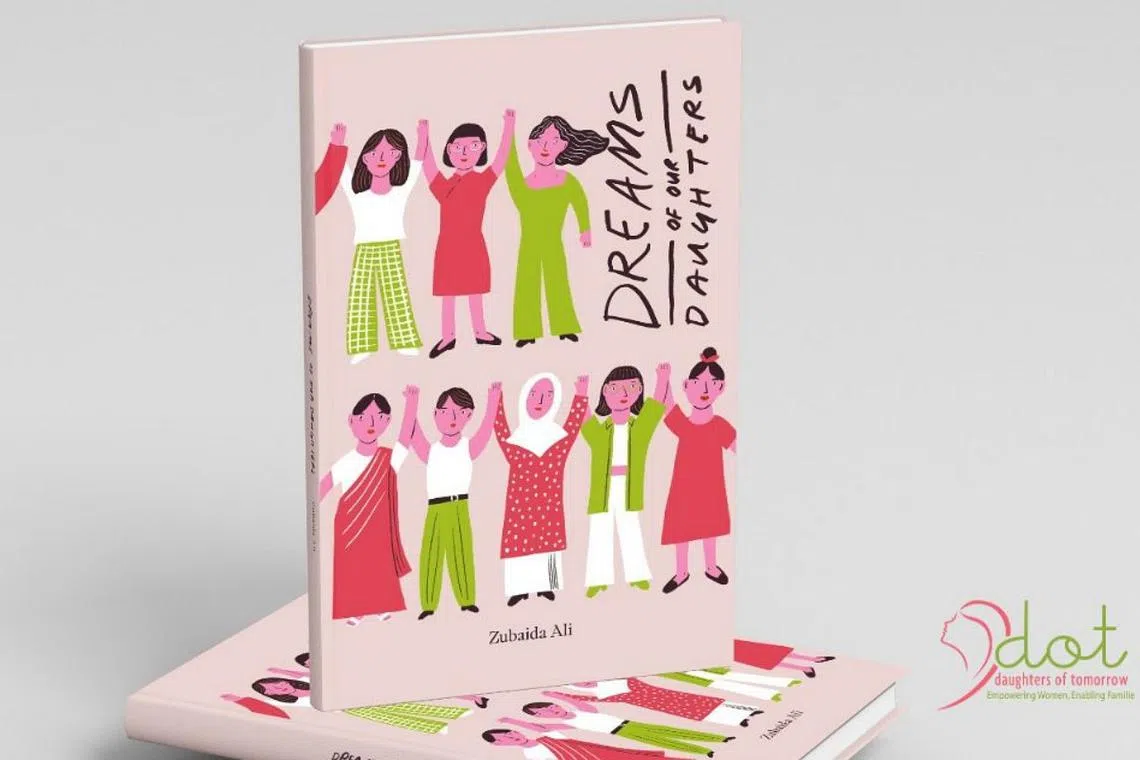Struggles of mothers, lower-income women highlighted in new book
Sign up now: Get ST's newsletters delivered to your inbox

Dreams Of Our Daughters highlights the lived experiences and struggles of women in lower-income communities.
PHOTO: DAUGHTERS OF TOMORROW/FACEBOOK
SINGAPORE - Efforts to promote greater equity and alleviate the struggles faced by lower-income women in areas such as caregiving, divorce and employability must be continued, in order to make Singapore a better place for women.
This is one of the key takeaways of a book highlighting the lived experiences and struggles of women in lower-income communities, which was launched by non-profit organisation Daughters of Tomorrow (DOT) on Friday. Written in English, the book, which costs $20, chronicles the journey of 15 women and their lives in Singapore.
Their stories show that multi-faceted challenges have affected the ability of these women to secure stable employment to provide for their families, said Minister of State for Social and Family Development Sun Xueling at the Dreams Of Our Daughters book launch at Common Ground in Bedok.
DOT works to improve livelihood opportunities for lower-income women to achieve financial self-sufficiency. A total of 264 beneficiaries have been assisted through its employment bridging programmes to date.
Ms Sun noted that the Government worries about single mothers, as caregiving poses a challenge to their employability.
She said: “How will you be able to work if you are the only caregiver for your child?”
Young single mothers are vulnerable, she added, as they may not have much experience in the job market before taking on caregiving duties, which makes it then difficult for them to get back into the workforce later on.
She added that Singaporeans, be it individuals, corporate donors or community partners, must work together and maximise synergies to render comprehensive and coordinated support to women and families facing complex issues.
Ms Sun said: “The Government cannot do everything itself, not because we do not wish to, but because outcomes can only be maximised and achieved when it is a whole-of-society approach.”
The book also tackles multi-dimensional poverty, which means that although a lack of resources like money is at the forefront of poverty, the issue leads to adverse effects in other areas such as strained relationships, poor health and a low sense of self-worth.
One of the 15 women who shared their stories in the book said that her life was turned upside down when she received a phone call from someone to tell her that her husband had been cheating on her for the past few years. To make matters worse, she found out she was pregnant with her fourth child while she was initiating divorce proceedings.
“How could I raise four children as a single parent? I was confused and angry,” she wrote.
“As much as the divorce was taking its toll on me, mentally and physically, I was not prepared for how it would hurt me financially.”
Executive director of DOT Fannie Lim told The Straits Times that a mindset shift within the community is needed in order to further efforts by the Government and community partners.
“We have to recognise our own personal agency and step up to do our part, whether it is by fighting stigma or extending a helping hand.”
She said that the issue of multi-dimensional poverty is not impossible to address.
Using the Government’s efforts in combating the Covid-19 pandemic as an example, she pointed out that if poverty were tackled head-on much like the virus, difficulties could be overcome.
Ms Lim said that while Singapore may be a better place for women now compared to a decade ago, a lot more needs to be done.
“We cannot just focus on the services available to help women. They are part of a system, and so we must look at the systemic barriers. We have a long way to go.”



